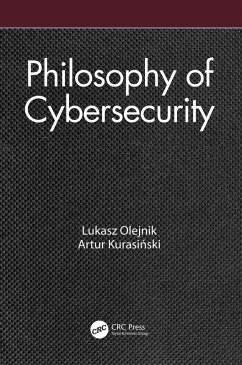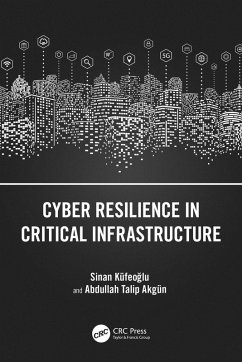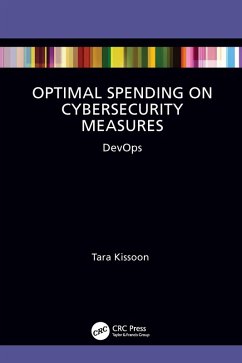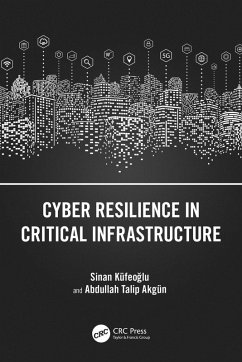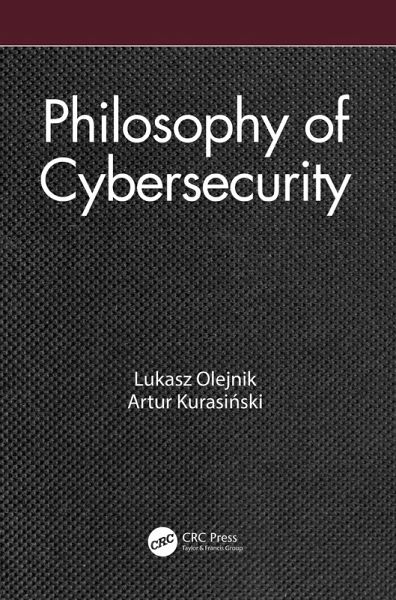
Philosophy of Cybersecurity (eBook, PDF)
Versandkostenfrei!
Sofort per Download lieferbar
44,95 €
inkl. MwSt.
Weitere Ausgaben:

PAYBACK Punkte
22 °P sammeln!
Technology and digitization are a great social good. But they also involve risks and threats. Cybersecurity is not just a matter of data or computer security; cybersecurity is about the security of society.Why "Philosophy"? To understand how to reason and think about threats and cybersecurity in today's and tomorrow's world, this book is necessary to equip readers with awareness. Philosophy of Cybersecurity is about the user's perspective, but also about system issues.This is a book for everyone-a wide audience. Experts, academic lecturers, as well as students of technical fields such as compu...
Technology and digitization are a great social good. But they also involve risks and threats. Cybersecurity is not just a matter of data or computer security; cybersecurity is about the security of society.
Why "Philosophy"? To understand how to reason and think about threats and cybersecurity in today's and tomorrow's world, this book is necessary to equip readers with awareness. Philosophy of Cybersecurity is about the user's perspective, but also about system issues.
This is a book for everyone-a wide audience. Experts, academic lecturers, as well as students of technical fields such as computer science and social sciences will find the content interesting. This includes areas like international relations, diplomacy, strategy, and security studies. Cybersecurity is also a matter of state strategy and policy.
The clarity and selection of broad material presented here may make this book the first book on cybersecurity you'll understand.
It considers such detailed basics as, for example, what a good password is and, more importantly, why it is considered so today. But the book is also about systemic issues, such as healthcare cybersecurity (challenges, why is it so difficult to secure, could people die as a result of cyberattacks?), critical infrastructure (can a cyberattack destroy elements of a power system?), and States (have they already been hacked?).
Cyberspace is not a "grey zone" without rules. This book logically explains what cyberwar is, whether it threatens us, and under what circumstances cyberattacks could lead to war. The chapter on cyberwar is relevant because of the war in Ukraine. The problem of cyberwar in the war in Ukraine is analytically and expertly explained. The rank and importance of these activities are explained, also against the background of broader military activities.
The approach we propose treats cybersecurity very broadly. This book discusses technology, but also ranges to international law, diplomacy, military, and security matters, as they pertain to conflicts, geopolitics, political science, and international relations.
Why "Philosophy"? To understand how to reason and think about threats and cybersecurity in today's and tomorrow's world, this book is necessary to equip readers with awareness. Philosophy of Cybersecurity is about the user's perspective, but also about system issues.
This is a book for everyone-a wide audience. Experts, academic lecturers, as well as students of technical fields such as computer science and social sciences will find the content interesting. This includes areas like international relations, diplomacy, strategy, and security studies. Cybersecurity is also a matter of state strategy and policy.
The clarity and selection of broad material presented here may make this book the first book on cybersecurity you'll understand.
It considers such detailed basics as, for example, what a good password is and, more importantly, why it is considered so today. But the book is also about systemic issues, such as healthcare cybersecurity (challenges, why is it so difficult to secure, could people die as a result of cyberattacks?), critical infrastructure (can a cyberattack destroy elements of a power system?), and States (have they already been hacked?).
Cyberspace is not a "grey zone" without rules. This book logically explains what cyberwar is, whether it threatens us, and under what circumstances cyberattacks could lead to war. The chapter on cyberwar is relevant because of the war in Ukraine. The problem of cyberwar in the war in Ukraine is analytically and expertly explained. The rank and importance of these activities are explained, also against the background of broader military activities.
The approach we propose treats cybersecurity very broadly. This book discusses technology, but also ranges to international law, diplomacy, military, and security matters, as they pertain to conflicts, geopolitics, political science, and international relations.
Dieser Download kann aus rechtlichen Gründen nur mit Rechnungsadresse in A, B, BG, CY, CZ, D, DK, EW, E, FIN, F, GR, HR, H, IRL, I, LT, L, LR, M, NL, PL, P, R, S, SLO, SK ausgeliefert werden.




